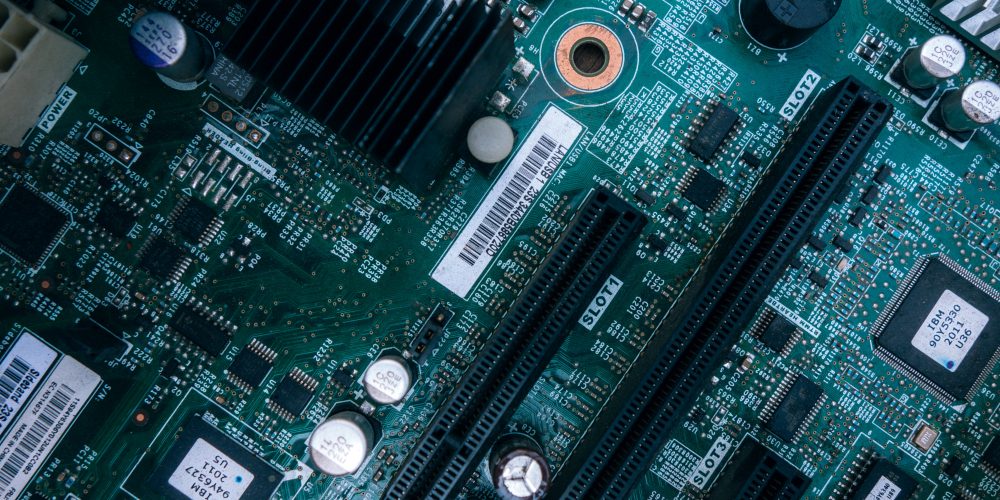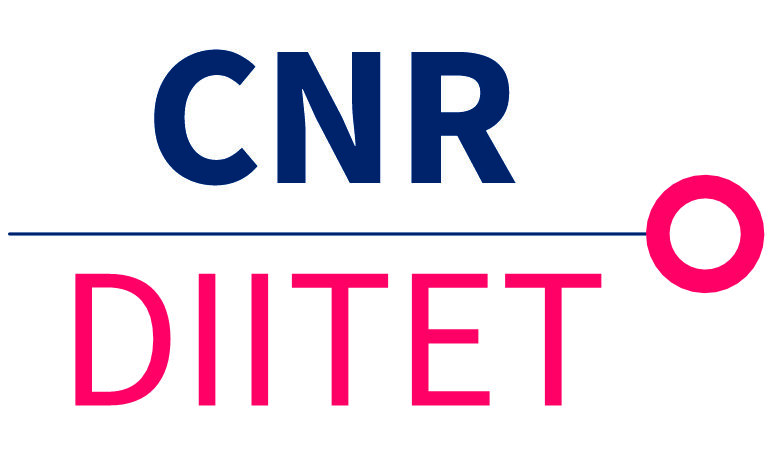
A) Purpose and Goals
The strategic "Informatics" area is a macro scientific sector that includes research in all fields of information technology, computer engineering, information and intelligent systems, high performance processing systems, robotics and bioengineering. With reference to the ERC panels, it covers the research topics of the entire sector "PE6" Computer Science and Informatics ".
Digitization is an overwhelming phenomenon that is revolutionizing every area of family life and work. Characterized by the integration of physical and digital technologies and the evolution of business processes and models, digital transformation promotes the emergence of increasingly intelligent products and services even in some of the most consolidated traditional sectors. Among the most interesting examples are the mobile-health, branch of e-health that uses ICT technologies to manage the processes of assistance, monitoring and acquisition of patient data at a distance; the development of self-driving cars and the intelligent management of traffic; the emergence smart energy grids that can also manage the introduction of energy into the network of prosumers and the development of the manufacturing sector in the direction of an almost simultaneous coordination between procurement, production and consumption of goods. The enabling platforms that make the development and the diffusion of intelligent services in the direction of the Internet of Things possible are constituted by the cloud computing, from blockchain, artificial intelligence, big data and ultra-broadband mobile connectivity services with particular reference to 5G. As far as the last point is concerned, Italy seems to have moved forward with respect to most of the other European countries and in line with the 5G Roadmap produced at European level. Although digitization represents a global phenomenon in which no national reality and no economic sector can escape, each country is revealing a different degree of maturity and sensitivity with reference to the use of digital services by citizens/consumers, businesses and P.A. In this race towards digitalization, the general data emerging from the analysis of data on some of the most widespread and important digital services is that Northern Europe presents a high degree of digital maturity, leading the European ranking, while Italy lags. The CNR can contribute to bridging the gap. The area is interested in scientific and popular activities in the fields of computer science research and information theory, the study of problems and, jointly, the design, production and use of information systems for innovation in society. Particular attention is paid to the method based on modeling, formalization and experimental verification. Therefore the area includes, not only all the basic and general aspects, but also the algorithmic bases (design and analysis of algorithms, computability and complexity, information theory, codes and cryptography), logical, semantic and methodological of information technology, including classical and quantum computational models; the system skills required to model and design computers, distributed systems, networks, telematic systems, languages (programming environments and methodologies, software engineering), information systems, databases and information access systems. Finally, the area includes the application and experimental areas related to innovative uses of information technology, such as image and sound processing, recognition and artificial vision, neural networks, artificial intelligence and soft computing, and computational simulation, computational graphics, user-computer interaction and multimedia systems. The competences of the area are targeted at providing IT tools and methodologies, which are the conceptual and technological basis for the variety of applications required in the information society, for the organization, management and access to information and knowledge of individuals, public administrations and private companies.
B) Scientific Technical Content
The technical-scientific activities of this strategic area are divided into 12 Project Areas (AP), which see the involvement of almost all the Institutes of the Department. The overall picture of the project areas related to the "Informatics" strategic area with the list of participating Institutes is shown in the table in the paragraph presenting the strategic priorities.
A real point of reference for the industrial world, the research activities, are carried out in the IT area, that is strategic to face the challenges defined by the PNR 2015-2020. They constitute the core of qualified knowledge and skills compared to some essential dimensions of Industry 4.0. The emerging role of information systems in almost all sectors of society and economy places the sciences and information technologies at the center of scientific and technological advancement processes able to contribute to the construction of a strong industrial policy on innovation and new technological challenges. Looking at the national and international context, in the coming years, we will be oriented to group our research activities on three themes, the Next Generation Internet (NGI), High Performance Computing (HPC) and Software Engineering (SW). The NGI theme covers communications, network monitoring, new Internet paradigms and IoT technologies focusing on the industrial Internet (Industry 4.0). HPC is fundamentally about cloud and edge computing and parallel architectures. The SW covers all aspects of software engineering, including formal methods, software monitoring, testing and verification, programming paradigms such as agent-based models. In all three issues, it is perfectly in line with the strategic Internet research directions of the future, both nationally and internationally. Regarding the " Horizon Europe" 9PQ, two of the three themes (NGI and HPC) are "Areas of intervention" for the "Digital and industry" group under the pillar "Global Challenges and Industrial Competitiveness". The SW will not be a specific area of intervention but it is indicated in many others (e.g. "Digital Technologies" and NGI) as a key enabler. All activities are also relevant in the other pillars of 9PQ.
In addition, the activities extend themselves to network, IT and data infrastructures. The e-infrastructures, that is to say the ICT infrastructures necessary to enable the complex, multidisciplinary and globalized practice of modern science, with their resources and services are at the center of the current changes towards Open Science and Open Innovation. The topics covered, and the services developed serve many research infrastructures in various sectors such as "Earth and Environmental Science", "Social Sciences and Humanities" and " Biomedical Sciences". The objective is to coordinate the participation of the CNR in the development of innovative and more powerful ICT infrastructures at national and international level, contributing to the European initiative for the cloud, based on two pillars: the European Open Science Cloud (EOSC) and the European Data Infrastructure (EDI), the platform for HPC and high-speed connectivity. Specific attention is dedicated to the definition and development of electronic infrastructures offering data management services that foster research, accessibility, interoperability and re-usability (FAIR). It is expected that these new infrastructure services will facilitate researchers and innovators in addressing various societal challenges and new business opportunities. Furthermore, the action plan on FAIR data will also be reflected in “Horizon Europe”.
Robotics research is aimed at developing new robotic systems with decisional autonomy, able to operate in complex and highly uncertain environments, also cooperating with other robots and humans. Robotics research activities are related to system development (open source, standards, best systems and tools), safe interaction between man and robot (better interaction), mechatronics (better machines), control strategies, perception, navigation and cognition (better action and awareness). The research in control systems is aimed at the study of complex systems, possibly interconnected, non-linear and dependent on a large number of parameters, whose management requires the design of control algorithms developed from the data measured in the field. Research in control systems is mainly dedicated to the development of new approaches and algorithms to devise new control systems characterized by fundamental properties, such as stability, precision, scalability, optimality, robustness and reduction of computational effort. The various activities can be cataloged in the following main fields: 1)control, estimation and optimization; 2)modeling and identification; 3)probabilistic methods and uncertain systems; 4)networks; 5)plasma structures.
The research themes oriented to the development of the "Smart City" are particularly relevant, which implies and requires a strong synergy between the different areas of application. In this context the issues include the sustainability of urban services and the improvement of the quality of life of citizens, collecting data from citizens, places and urban resources, processing and analyzing these data to improve the services of the city. At the center of this vision is the Smart City IoT Platform, a system that enables the collection of data from connected sensors integrated with real-time monitoring systems, personal crowdsourcing devices of citizens and various types of everyday objects that are distributed in the city. The information and knowledge that can be gained from these data are essential to improve the operations and services of the city. Research is concentrated in four main areas: a)Energy, where a priority is the development of new technologies, approaches and tools to manage and control urban energy systems and networks; b)Transport, where the key priority is to design efficient, safe and sustainable urban mobility systems, reducing dependence on inefficient private motorized transport and mitigating traffic congestion and other transport costs; c)Buildings, not only to optimize energy consumption, but also to offer people customized solutions with the aim of improving the quality of life in their living environments from the perspective of cognitive construction, receive feedback and provide recommendations; d)Community of citizens: because citizens play a key role in the development of smart cities and represent the final users of all services. A summary list of the research for the aforementioned thematic areas includes: (i) connected, cooperative and automated mobility systems; (ii) analysis of data and video for security applications in urban environments; (iii) the use of big data analytics, machine learning and artificial intelligence to enable intelligent cognitive cities; (iv) the identification and use of appropriate data analysis platforms that allow both the analysis of historical data and predictive analysis; (v) algorithms and applications for tourism and the use of cultural heritage.
C) Research Infrastructures
More than 30 hw/sw systems, including clusters, servers, portals, platforms, FAIR enabling services, network-enabling architectures and applications, made available inside and outside the CNR. Furthermore, the management of internationally recognized infrastructures, such as D4Science and OpenAIRE, as well as the unique national structures such as the "Registro.it" and the DInSAR PSBAS processing chain (for civil protection) are a signal. Through this area, DIITET also participates in ICDI (Italian IT infrastructure and data), a forum of important representatives of Italian research infrastructures, promoting national synergies, harmonizing and facilitating the Italian contribution to European and global initiatives. The joint laboratory IEIIT - Polytechnic of Milan "WaveLab", located at DEIB-POLIMI (Department of Electronics, Information and Bioengineering of the Politecnico di Milano) with the aim of providing a research center for industrial/scientific applications based on systems wireless. It is equipped with several radiofrequency (RF) analyzers/generators and radio devices based on different protocols (WiFi, BT, Zigbee, NBIoT). The laboratory also provides a radiofrequency measurement framework based on data acquisition in the field.
D) Financing Sources
The thematic areas and the project proposals related to the strategic area "Information Technology", correspond to the area of the Horizon 2020 program "Industrial Leadership" (Leadership in Enabling and Industrial Technologies - LEIT), from which the majority of funding followed by use of PON Governance funds derive. Participation and coordination of international and national in the entire area is numerous.

